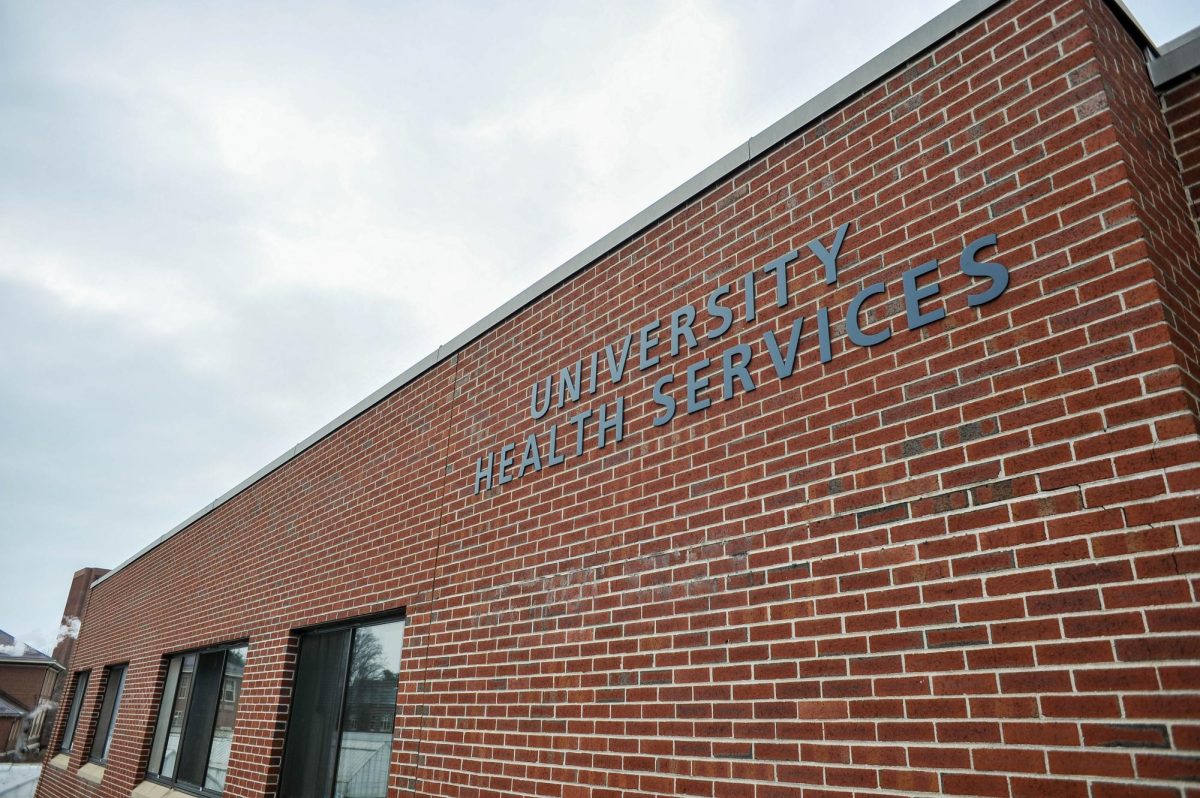Dear Vice Chancellor Sheehan,
The week before spring break, hundreds of students sent emails and left voicemails to ask that Dining Dollars be allowed at student businesses for the 2015-2016 school year. While we appreciate the letter you sent in response to this outpouring of student opinion, we would like to take a moment to directly address some of the points that you made.

As you wrote, both entities entered into a Memorandum of Understanding seven years ago, with UMass Dining generously allowing the acceptance of YCMP at four student businesses. However, with the addition of Dining Dollars to meal plans this past year, we see an excellent opportunity for significant updates to the MOU.
For student businesses to remain successful as UMass Dining continues to expand and compete, they must be allowed to accept what has become standard currency in our campus economy.
Furthermore, we simply cannot accept the obstacles you mention – increased operating costs due to wage increases and benefits to seasonal (03) employees, cost of living adjustments to current employees, commitments to sustainable food systems, as well as an increase to student fees – as legitimate reasons for why UMass Dining cannot oblige this student request.
Without going into detail about the labor violations and poor practices of UMass Dining, the wage increases and benefits to 03 workers, for which AFSCME is still waiting on the final draft from your office, are three years overdue. Poor prioritization of incorporating these additional operating costs, all while spending millions on renovations over the past couple years is not a convincing argument to exclude Dining Dollars from student businesses.
In response to your note on the Student Advisory Sub-Committee on Dining, we are delighted that there has been such a committed showing of administrators in attendance. In these meetings, UMass Dining gave students the UMass Dining Board Operating Statement for the upcoming year as well as budgeting compiled from the financial subsection of auxiliary services.
Unfortunately, concerned Isenberg School of Management students found the financial information useless for understanding the true financial position of the enterprise. As the primary funders of UMass Dining, students deserve to know exactly where their money is going. Providing us with a complete lack of tangible financial information does not do that.
While there is a face of transparency within these meetings, the trend of secrecy and appeasement that has caused tension between the administration and students for many semesters continues. As a result, many questions we have about where UMass puts students’ fees, beyond basic questions we can ask from the information we do have, like why $365,000 is being spent on consultant services, or half a million on administrative expenditures, haven’t been addressed.
Student requests for specific financial information in these meetings, such as a breakdown of cost increases for students over the past 10 years, have also been ignored.
As students whose payments for meal plans directly finance UMass Dining, we ask again that Dining Dollars be accepted at student-run businesses – Earthfoods Cafe, Greeno Sub Shop, Sylvan Snack Bar and Sweets N’ More – this upcoming academic year, without an increase to student costs. We are confident UMass Dining can thoroughly explore this possibility over the next week and present a feasible plan in its upcoming meeting with the Center for Student Business.
Thank you again for your commitment to student voice and input.
Sincerely,
Student Administration Accountability Coalition
SAAC is a group of concerned students and student business customers working to ensure the UMass administration prioritizes student demands.[liveblog]


















Anyonymous • Mar 27, 2015 at 5:50 pm
So, in your analogy is the dollar YCMP? Because in the e-mail he say’s they’re not taking away YCMP. And, you guys didn’t have dining dollars to start out with.
Your analogy would make sense if Store A decided to increase their revenue by taking bitcoins too. Sure, store B would be upset but, that’s because it’s a reduction in market share. Store B is still performing as well as they did before Store A got bigger but, their competitors just got bigger. It’s not a reduction in buying power, Store A just provided them with more payment options so they can make money. It’s not like you’re losing customers. Your argument would make sense if they said they were getting rid of YCMP.
All in all, they give you 300,000, and I’m guessing they barely make anything from that. I’m surprised you guys have the balls to demand for more.
CounterName • Mar 26, 2015 at 11:46 pm
Name,
That scenario isn’t accurate to this situation, as you are assuming that this “dollar” is a neutral thing. Dining Services runs and administers the meal plan program, spending money to do so, and thus loses money on every dollar spent at student businesses. It’s a subsidy, a subsidy that those who never go to student businesses may not want to increase.
If you want to use a dollar the same way everywhere, you need to move off campus and get off meal plans.
Name • Mar 26, 2015 at 12:07 pm
OK, maybe I can explain it this way:
You have a dollar. You can use that dollar at Store A and Store B. Each store takes that dollar at the same value. Your daily habits generally lead you to go only to Store A, but you know Store B exists
Then, one day, it has been announced that Store B can no longer take your dollar, because a higher authority said so. You can still use it at Store A (which is what you usually do anyway), and the dollar still has the same value as before.
Your neighbors and locals in your area begin to get angry, because many of them use their dollar (which is the same kind of dollar as yours) at Store B, and now they are told they can’t.
Are you going to say to these people “Oh well, I only use Store A, so I’m not going to care about this situation”, or are you going to agree that this decision to limit the buying power of that dollar is unfair, even though it does not necessarily directly affect you?
Anyonymous • Mar 24, 2015 at 1:02 pm
I’m cool with a reduction in buying power if that means I don’t have to pay more for my meal plan. I live in Southwest anyways, there aren’t any student businesses around us. If they’re already budgeting $300,000 to student businesses and, ‘students’ are demanding more, then it’s going to come out of the students pockets. I put students in ‘ ‘ because I don’t think the majority of campus (SW) feels the same way/even knows about this.
I’m all for student businesses, but if my family has to pay even more than they already do for them, then that’s not fair because it’s not what I signed up for.
-Broke Student
Name • Mar 23, 2015 at 9:57 pm
In response to “Broke Student”,
All of the student businesses are entirely not-for-profit, and the revenue we receive in fact goes into a secure bank account that is administered by UMass. In this situation, the members of all student businesses do not “just want more”; we just want our customers to be able to use their already-spent money as they freely choose. Many students are angry that UMass is forcing them to purchase dining dollars while also limiting their buying power significantly.
Anonymous • Mar 23, 2015 at 4:33 pm
UMass Dining is the most corrupt part of this entire campus. They aren’t transparent because they spend 20k on guest appearances and lectures that they pay student employees to attend. Or the fact that they bought votes for the Princeton Review in order to attain their ranking.
Anonymous • Mar 23, 2015 at 2:55 pm
To SAAC,
Wouldn’t UMass Dining giving Student Businesses dining $ end up costing more for students? I would rather not be able to use my dining dollars at student businesses which there aren’t any of in SW, than pay more than I already do my dining plan.
And, this article seems a little bias to me. There’s a lot of criticism for Umass’ spending/finances, but what’re the student businesses doing with the 300k that they’ve been given already. All I see from here is that they just want more.
-Broke Student